The Philanthropist Who Saves Families from Distress: "I Negotiated with Hashem, and It Worked"
Raphael Barbi, a flourishing businessman from Paris, left his bourgeois life to establish Israel's first and only supermarket for the needy. On living in Kfar Saba, luxury cars, the deal he made while on his deathbed, and the food kitchen he recently opened in memory of the soldier Yosef Cohen z"l: "He is my soulmate." The angel Raphael
 Raphael Barbi (Photo: Private Album)
Raphael Barbi (Photo: Private Album)Raphael Barbi, 38, smiles warmly as the owner of the "Or Mitzvah" charity that operates Israel's first supermarket for the needy. His penetrating eyes are deep and empathetic. "I am not from here," he says with a heavy Frenc-accented Hebrew, "I am from the diaspora, from France, now thank G-d I am here in Israel. I've finished there," he rattles off in broken Hebrew with Parisian slang to describe the background to our cheerful encounter: the opening of a new food kitchen in memory of the soldier Yosef Cohen z"l, who was murdered in a terror attack at Givat Assaf about eight months ago. The food kitchen was established, as mentioned, within the compound of the first, and so far the only, supermarket for the needy in Kfar Saba. Every day hundreds from the Sharon and central region come, "without distinction of religion, gender, or ethnicity," he proudly states, perhaps partially because of the content of the words, perhaps due to successfully articulating them without pronunciation mistakes.
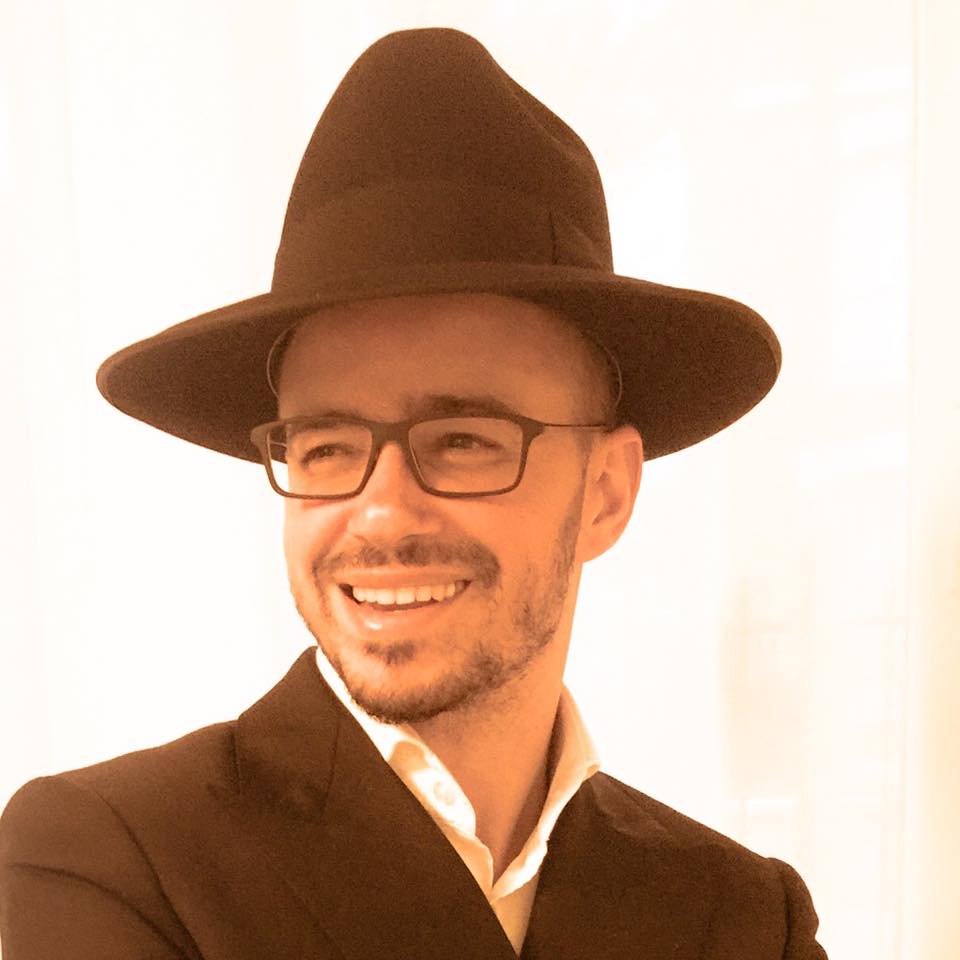 Raphael Barbi
Raphael Barbi
Chansons and Business
Barbi arrived at our meeting in an ironed azure shirt by 'Pierre Cardin,' a luxurious golden watch whose brand I hesitated to inquire about, branded glasses, and a gray Borsalino hat. The conversation between us unfolded over "Cafe Au Lait" (for you, that's Cafe Latte) at Cafe Landwer in Kfar Saba, where he resides, and extended much longer than typical interviews. The duration was because of his curiosity about life in Israel, specifically the Israelis living there, the cultural milieu, and the blend of sacred and secular, which he passionately lauded throughout the interview. His curiosity, bordering on childlike naivety, occasionally elicited smiles from those around us who overheard his innocent questions.
He was born about 38 years ago into a liberal North African Jewish family affiliated with the Chabad movement in an affluent Parisian suburb: "My parents weren't particularly wealthy, but we never knew hunger. The cost of living in Paris was high, but we managed. Father worked, mother worked, everything was great. My siblings are also doing well. Naturally, Father wanted us to study in Jewish schools, and even though there are some in France, he sent me as a child to study in Kfar Chabad in Israel. But to be honest, I wasn't that connected to it. You know, there's love for tradition, Shabbat, holidays, kosher, but there are also other lifestyles, entertainment. I have to say, in France, it’s not unusual to go out for fun and still be considered religious. It's not a paradox. When I grew up a little, my father asked if I wanted to study in a yeshiva, and I told him 'no,' I want to go into business."
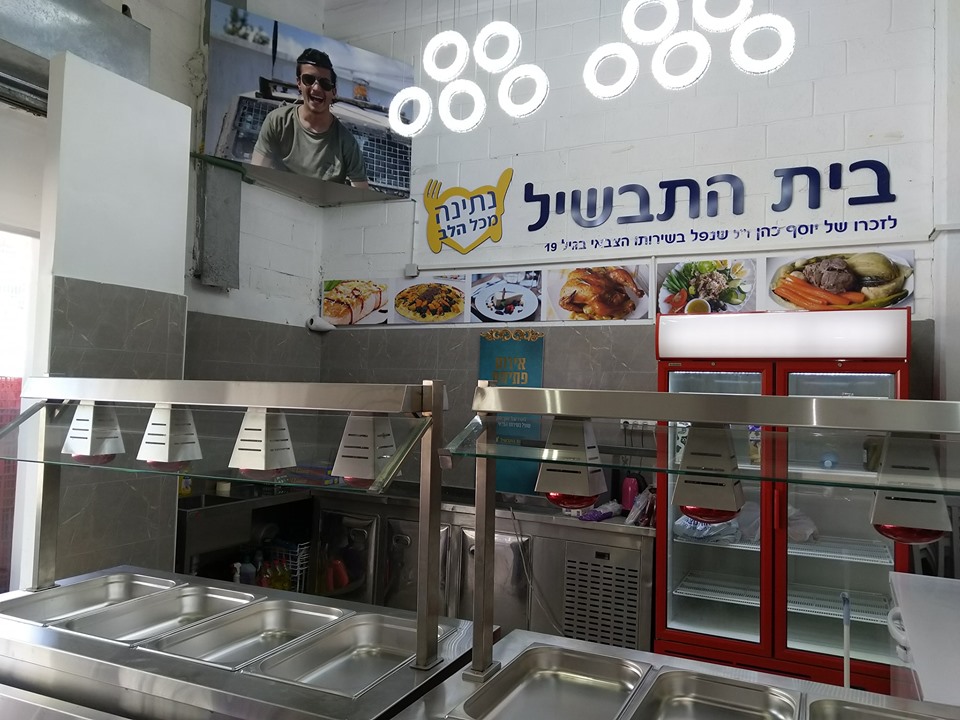 The Soup Kitchen
The Soup KitchenIn which business did you engage?
"I decided to delve into high-tech and trade, specifically retail of consumer goods. I opened several places, mainly in Paris, as you know the city is huge, comparable to half of Israel, and I was quite successful. I established a large center for quality consumer products at reasonable prices and was quite successful." He laughs behind his neatly trimmed beard sprinkled with a few gray hairs, "I had a nice car, good clothes, enjoyed life as they say."
That hasn't changed, I see.
"What, the clothes? No, there's no prohibition on that, right? I have Shabbat clothes with a Chasidic frock and everything, but on weekdays I need this for myself too, it makes me feel good even after I became much stronger in faith."
A Deal with Hashem
Barbi continued his bourgeois lifestyle as a Jew, let's call him a 'nouveau riche' in Paris, "enjoying all worlds," as he defines it. When his time came, he met a Jewish girl "from a good Moroccan family, so I can eat delicacies, thank G-d," he winks with a playful grin jumping from between his lips. They got married and after some time their first son was born.
The events that followed this "golden" period, which changed his life drastically, are what turned him into what he is today. "Five years ago," recalls Barbi, "I received the 'biggest slap of my life.' One day, probably due to the extensive contact I had with various traders throughout France, I contracted a very severe infection from a dangerous bacteria I caught. A type of flesh-eating bacteria. My wife rushed me to the hospital in Paris, and the doctors gave me no chance. They told my wife that if we're Jewish, our only option left is to pray to G-d. I was under very heavy isolation, and being the businessman I am, I made a deal with Hashem and told Him that if I get out of there, I will dedicate my life to helping the needy."
Why specifically the needy?
"I can't precisely tell you. It's probably in my nature. Of course, I come from a compassionate family, and sadly in my work, I've occasionally encountered people who struggled, to whom I obviously donated, but I think it's more of a character thing. Anyway, apparently, the deal worked. I'm a good trader, but unfortunately, after I recovered, I forgot about it. Let's not forget that I was under a lot of morphine, and sometimes when a person is in distress, they say all sorts of things and might subconsciously forget them later. Also, my absence from business required me to return intensely, and so I forgot. Several months later, during my usual visit to my parents, I opened the Holy Letters of the Lubavitcher Rebbe, and it came out exactly with words saying: 'a mission for the needy,' and boom. It suddenly hit me, and I remembered my promise. I was very afraid of this vow I made, and decided I had to act on it. I'm an honest trader whose word is his bond with human traders, so wouldn't I keep my word to Hashem? I immediately rented a 200 square meter place in Paris and called it 'Or Mitzvah,' which was intended for basic quality goods at rock-bottom prices. For one euro, you could have a rich breakfast. I found myself, focusing amid all my business, right there. I was drawn to it. Suddenly I saw needy people coming in droves and leaving happy. It made me feel good. Within a year, I expanded to 400 meters, and a year later to a 1000 square meters in Paris. You know what I'm talking about? A thousand square meters of a supermarket for the needy in Paris is a significant thing."
Was it only for the Jewish community?
"No. Anyone hungry and lacking could enter, Jews, Muslims, Christians. Everyone. Beloved is man for being created in the image, every person. In my dealings with these matters, there are no distinctions. Whoever needs, receives. They are a creation of Hashem."
Immigrating to Israel
As minutes passed, coffee replacing another, Barbi tried to understand through me whether what he was saying about taking care of people from all religions could cause him issues in Israel. The café's patrons, who overheard his words, were impressed by him and my assuring explanations that such a view does not contradict Judaism. This encouraged him to continue unraveling the life events that led him to immigrate to Israel.
"About three years ago, the phenomenon of anti-Semitism in Paris in particular and in France in general began to intensify, and I had thoughts of leaving. There were several very bad incidents. Although I never personally experienced it because Muslims and Christians always respected me, it didn't feel good to me. Also, since I started focusing on helping the needy, I've become stronger in faith; my clothing changed, a yarmulke always on my head, and don't forget I had a small family already, we had to think of everything. My wife is French but loves Israel very much, so we agreed it was time. I sought 'Tora advice' and understood from the rabbi of the Chabad movement that in the land of Israel, one can also fulfill an important mission. I decided in favor of immigrating to Israel, hoping to implement here the mission of assisting the needy. We searched for a good place, heard about various locations where many French had settled, but ultimately decided on Kfar Saba, together with our four precious children."
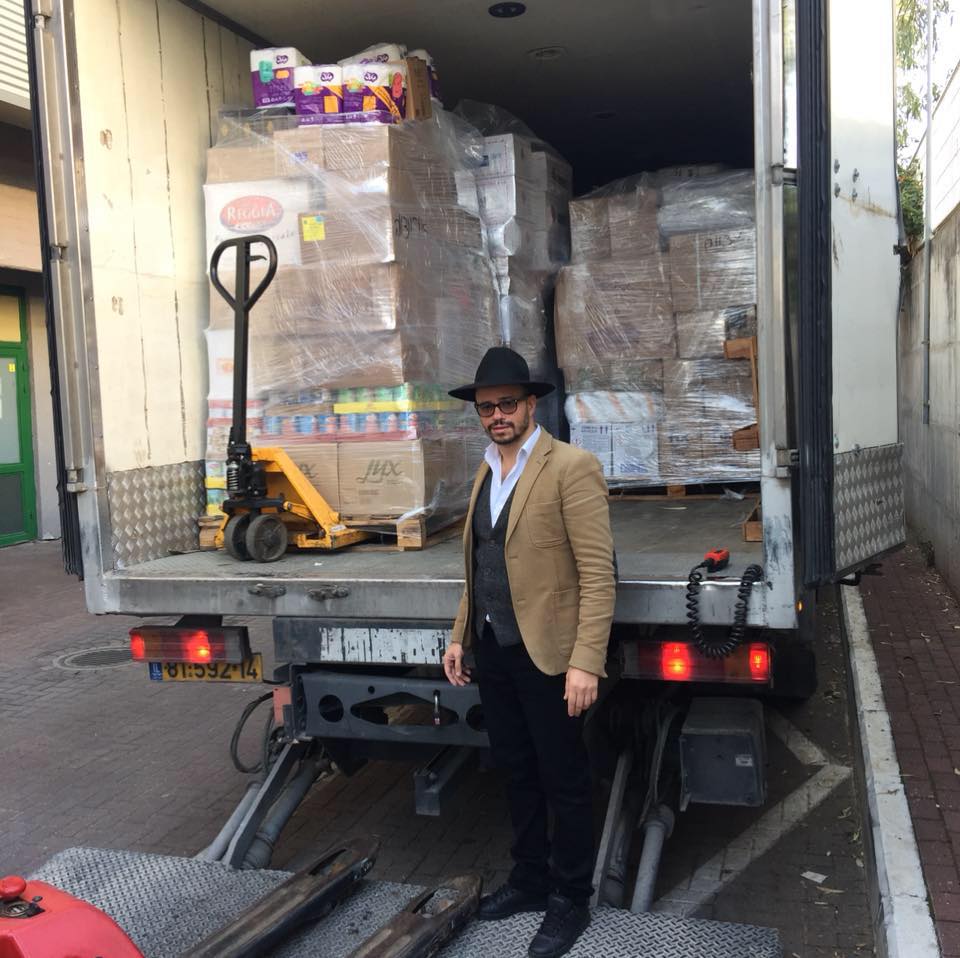
Barbi adds with emotion: "I have to tell you that Kfar Saba's people are amazing. Their hand is generous and wide to the needy, and their heart is vast as the sea. That's how Jews are, whether they have a yarmulke or not, we're commanded to love every Jew for who they are, and I see firsthand that that's what happens."
"Some People Have Not a Single Shekel"
The move to Israel with his family about two and a half years ago went smoothly, and he hasn't forgotten his mission. Within a few weeks, Barbi got to work and established Israel's first supermarket for the needy in Kfar Saba's industrial zone: "Everything is divine assistance; I was looking for a very good place, but the rent was very expensive in the city, 15,000 shekels a month, in addition to expensive property tax. Even though I had money, still every month 15,000 shekels not including contents is a lot. I considered moving to a smaller place, but then a great righteous man, the owner of Yainot Bitan, told me he was willing to take on the rent. That was his contribution. So we were for a year, and that's how the first supermarket started. After a year, he sold his business in Kfar Saba, and I understood we needed to move to a smaller place. I knew I was entering into a significant commitment, but I took it upon myself because I couldn't neglect the many families that already frequented us. I had a very strong feeling that Hashem would send His angel before me, and indeed a precious person arrived, who prefers to remain anonymous, and donated a very large space at 14 Hate'ash Street, where we operate until today."
What do you have in the supermarket?
"Everything, baby products, clothing, fruits and vegetables, food, whatever you want. Families come from the welfare departments in the area, mostly from Kfar Saba but also from Ra'anana, Herzliya, Hod HaSharon, Gush Dan, and the center in general. It's open to all residents of Israel, and they pay 2 shekels, 5 shekels per item if they can, of course. They need to come through the welfare department that gives them a special form."
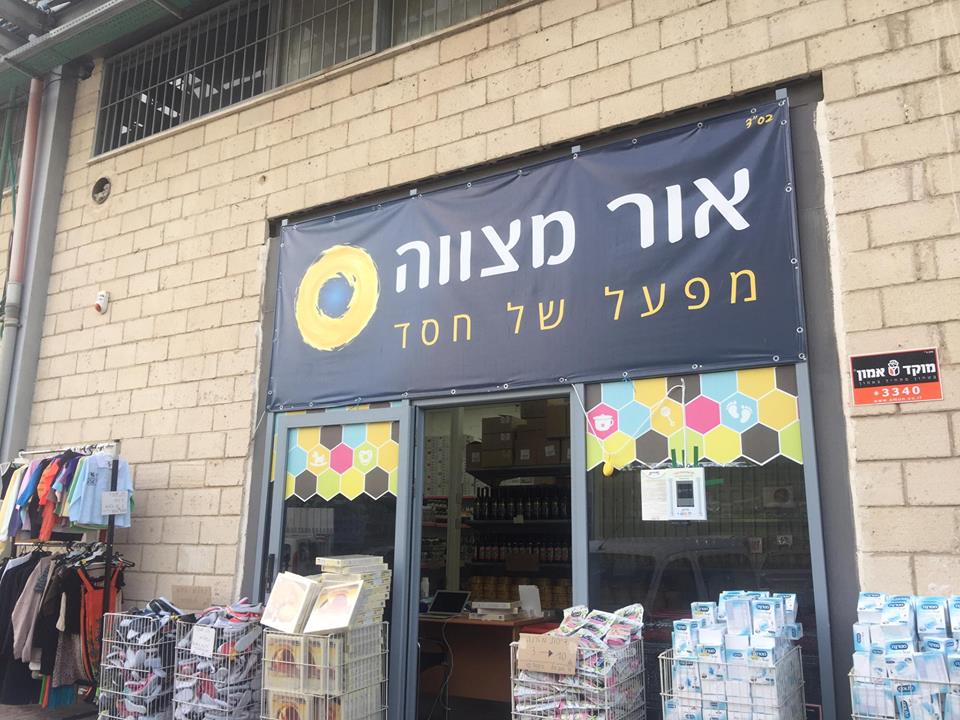 Or Mitzvah Supermarket
Or Mitzvah SupermarketHow many families are we talking about?
"Between 50 to 60 families every day. Those who come are really needy people who have nothing to eat at home. There's one lady who always leaves with a full cart, and I don't let her pay because she doesn't even have one shekel in her pocket. I know this for sure. Not all families are those born into need. For instance, someone who was a big contractor was diagnosed with cancer, and since then, he stopped working, sold all his savings and houses because of the medicines. I visited his home, and I'll tell you, it breaks your heart, he really has nothing to eat. Nothing."
My Soulmate
The conversation with Barbi flows smoothly. Despite his broken Hebrew with pieces of French, he's clearly very enthusiastic, with a spark in his eyes as he talks about the 'projects for the needy' that he initiates and manages. But it doesn't end there.
"About six months ago, I saw a viral video of the father of the soldier Yosef Cohen z"l who was murdered in a terrorist attack at Givat Asaf," Barbi recounts, "his father talked about his son's infinite giving for the sake of the Land of Israel and his love for the people of Israel. Suddenly I hear one of Yosef z"l's friends tell a story about him. He said that one evening at the base, the guys decided to order pizzas, and each soldier paid. Yosef saw one of the fighters refusing pizza because he had no money, so Yosef pulled out a 50-shekel note from his wallet so that he too could eat together with everyone, feel equal, and not remain hungry. Yosef was incapable of seeing soldiers hungry or lacking. He gave even when he had little; he had boundless giving, a great soul. I immediately felt a connection to him as if he were my soulmate, and I decided to establish a food kitchen in his memory.
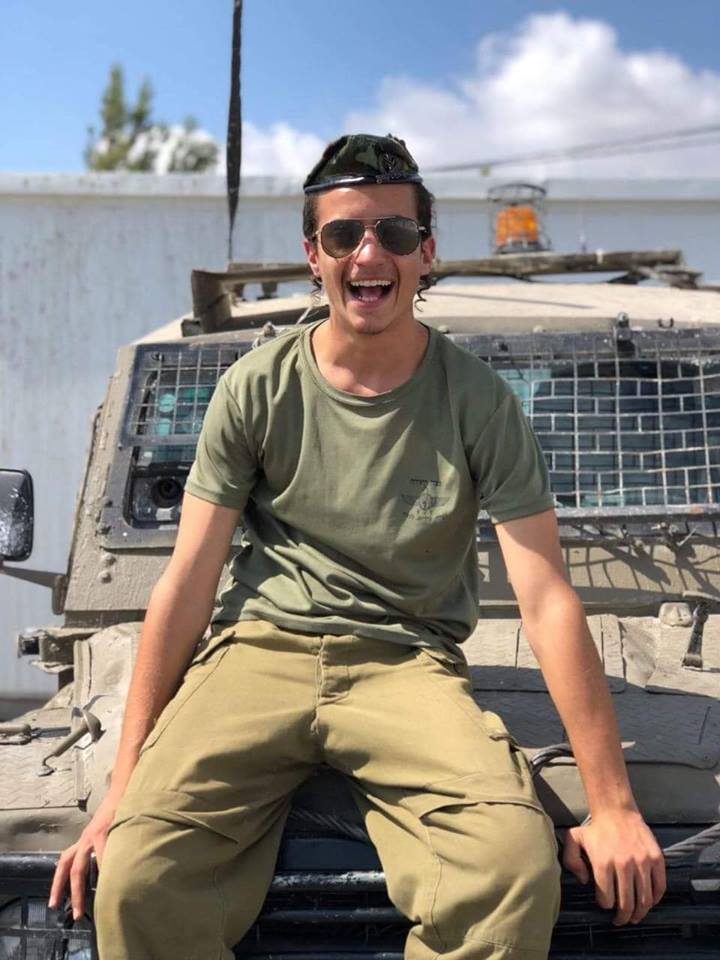 Soldier Yosef Cohen z
Soldier Yosef Cohen z"In the same place where the supermarket is located, we broke a few walls and built a very large kitchen, approved by the health department. We enlisted some halls ready to donate food, not leftovers, but a special chef that cooks for us. I have a principle: what suits me, suits the needy. If I don't eat leftovers, neither will the needy. They will eat food of the highest quality, like a prestigious restaurant. The suppliers who bring us the food always let me taste it first; if something pleases my palate and is good, it will be on the buffet. If not - then not.
"We established a large buffet open all hours, with fresh, high-quality food - meat, poultry, fish, whatever you want. Really gourmet dishes. Each plate costs 2.5 shekels. People come and take home, also for Shabbat and holidays. We have excellent response."
Did you tell his parents about the food kitchen in his memory?
"Of course, they were here at the opening we did. It was very, very moving. The father simply couldn't stop crying, and neither could I, and I don't think there was a dry eye that wonderful evening."
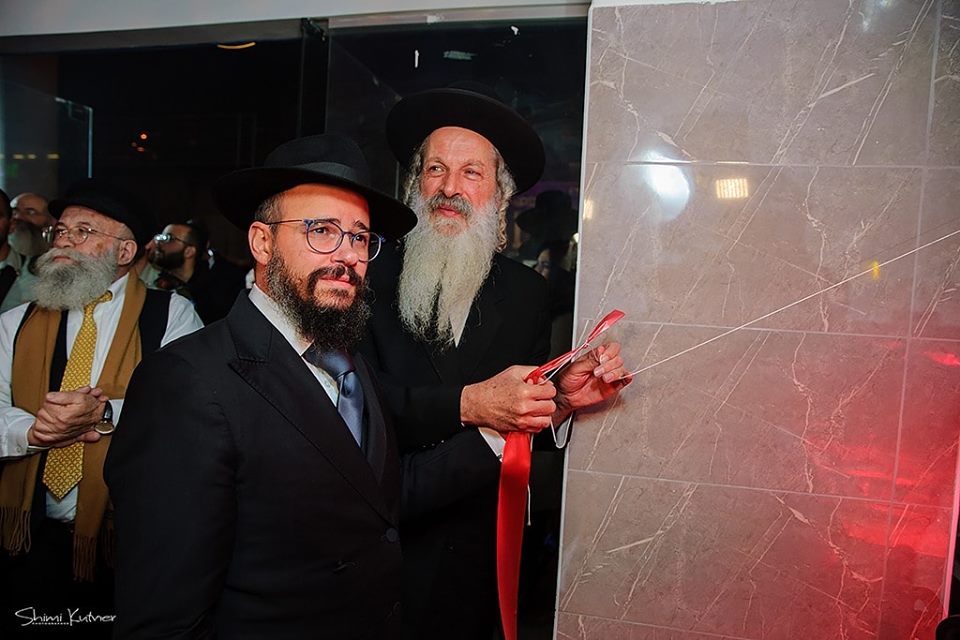 Barbi and the soldier's father
Barbi and the soldier's father"My Wife - The Source of Blessing"
Barbi, who, as mentioned, is frenetic about helping and assisting the needy, is already working on his next project, which is currently in the planning stages, but firstly, he must mention that the true blessing he has comes from his wife: "My wife is my blessing," he states, "she is a very educated woman, and much more generous than I am. She doesn't care about calculations or anything. The main thing is to buy and help. She always tells me: 'Cast your burden on Hashem. Don't worry, everything will return.' She's always right. Before every Passover, she scatters a lot of checks for buying products and loads the supermarket, just to have enough. And me, I still have a businessman's mind, a bit scared to scatter checks, but she has no problem. She says: 'Forget the calculations, Hashem will not disappoint,' and I must tell you, she's always right. She has blessing and abundance."

